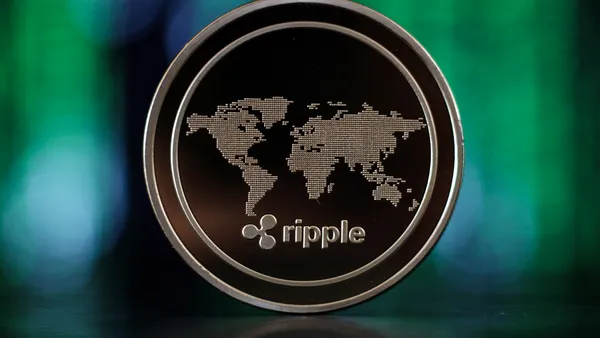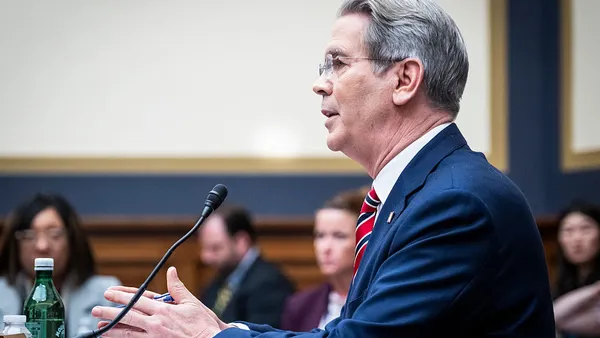Dive Brief:
- The Consumer Financial Protection Bureau (CFPB) on Friday expanded the methods debt collectors can use to contact borrowers to include voicemail, email and text messages, but restricted to seven the number of times a collector can call a consumer about a particular debt over seven consecutive days.
- The 653-page final rule requires debt collectors to offer consumers a "reasonable and simple method" to opt out of communications sent to a specific phone number or email address, the bureau said. If the debt collector uses electronic communications to reach out, a consumer can use that same mode of contact to send a "cease communication" request or inform the collector they refuse to pay, the CFPB said.
- The CFPB's rule, however, gives collectors an out, establishing a type of communication — a limited-content message — they can use that won't count toward the limit. That description applies to a voicemail that does not contain information subject to the restrictions of the Fair Debt Collection Practices Act, which passed in 1977.
Dive Insight:
Friday's rule lays out the parameters under which debt collectors can operate, for the first time incorporating modes of communication that didn't exist in 1977. The rule takes into account 14,000 public comments the bureau received in response to a related May proposal.
"With the vast changes in communications since the FDCPA was passed more than four decades ago, it is important to provide clear rules of the road," CFPB Director Kathy Kraninger said in a press release Friday.
Although the rule subjects debt collectors to a seven-call limit, surpassing that number may not automatically result in a penalty. Rather, other factors — such as whether the calls "had the intent to annoy, abuse or harass the person at the called number" — should be considered, the bureau said. However, consumers have the right to sue when a collector violates the cap.
The bureau did not clarify its rules surrounding validation notices, which debt collectors are required to send to consumers to let them know of an outstanding debt.
"Much of the litigation in debt collection revolves around validation notices, so for industry, that is a big punt because it harms all stakeholders," Joann Needleman, the attorney leading Clark Hill's consumer financial services regulatory and compliance group, told American Banker. The CFPB said it is still doing qualitative testing on validation notices.
The FDCPA's prohibition on harassing, oppressive or abusive conduct applies to email and text messages in addition to phone calls, said the CFPB, which also restated the act's prohibitions on false, deceptive, unfair and misleading practices.
Friday's rule clarifies that debt collectors must retain records showing compliance or noncompliance with the FDCPA and Regulation F, and prohibits the sale or transfer of certain debts.
The CFPB aims to address a second rule next month on the disclosures of time-barred debt — particularly keeping collectors from suing for debts they know are past the statute of limitations.













